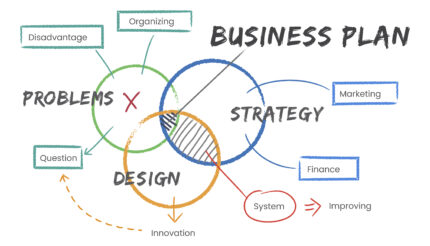Scaling Up for Success: Step Back and Enjoy the Rewards
Scaling up for success: Are you tired of being constantly tied down to your business? Do you dream of creating a successful enterprise that can run efficiently without your constant presence? Scaling up your business is the key to achieving this dream. In this article, we will explore the essential steps to create an efficient business that allows you to step back and enjoy the rewards.
Scaling up is not just about growing your business; it’s about putting systems and processes in place that allow your business to function smoothly even when you’re not around. By implementing effective strategies, you can ensure that your business operates efficiently, enabling you to focus on the big picture while your team takes care of the day-to-day operations.
We will delve into various aspects of scaling up, including optimising your operations, building a capable team, automating processes, and leveraging technology. By mastering these elements, you can create a business that not only grows but also provides you with the freedom to enjoy the rewards of your hard work.
Join us as we explore the path to scaling up for success and discover how to build an efficient business that allows you to step back and enjoy the fruits of your labour.
Benefits of creating an efficient business
Scaling upfor success is more than just a desire to grow; it is essential for long-term success. As your business expands, so do your responsibilities. By scaling up, you can ensure that your business continues to thrive even without your constant presence. This allows you to focus on strategic decision-making, exploring new opportunities, and enjoying the rewards of your hard work.
Moreover, scaling up provides stability and security for your business. By creating an efficient operation, you can weather economic downturns, changes in the market, and even unexpected crises. An efficient business is built on solid foundations, making it more resilient and adaptable to external factors.
Scaling up also opens up new possibilities for growth and expansion. With streamlined processes and a capable team, you can explore new markets, launch new products or services, and take your business to new heights. The opportunities are endless when you have a strong foundation in place.
Steps to create an efficient business
Creating an efficient business brings numerous benefits that go beyond just financial success. Let’s explore some of the key advantages:
- Time Freedom: An efficient business allows you to step back and reclaim your time. With streamlined operations and capable team members, you can delegate tasks and focus on the strategic aspects of your business. This gives you the freedom to spend time with loved ones, pursue personal interests, or even explore new business ventures.
- Increased Productivity: Efficiency breeds productivity. By optimising your processes, eliminating bottlenecks, and automating repetitive tasks, you can maximise productivity within your organisation. This not only leads to higher output but also improves employee satisfaction and morale.
- Improved Customer Experience: An efficient business can provide a better customer experience. With streamlined operations, you can deliver products or services quickly, respond promptly to customer queries or issues, and exceed customer expectations. This enhances customer loyalty, generates positive word-of-mouth, and ultimately drives business growth.
- Scalability: A well-structured and efficient business is ready for growth. As your business expands, you can easily replicate your processes, systems, and team structure to accommodate the increased demand. This scalability allows you to seize new opportunities and adapt to changing market dynamics.
Identifying and optimising key processes
To create an efficient business that allows you to step back and enjoy the rewards, you need to focus on several key steps. Let’s explore each of these steps in detail:
-
Identifying and Optimising Key Processes
Efficiency starts with understanding your key processes and identifying areas for improvement. Analyse your operations from end to end and look for bottlenecks, redundancies, and inefficiencies. Streamline your processes by eliminating unnecessary steps, automating manual tasks, and implementing best practices. Continuously monitor and refine your processes to ensure ongoing efficiency.
-
Implementing Automation and Technology
Automation and technology play a crucial role in creating an efficient business. Identify areas where automation can streamline your operations, such as customer relationship management, inventory management, or financial reporting. Leverage technology solutions that align with your business goals and integrate seamlessly with your existing systems. By embracing automation and technology, you can enhance efficiency and reduce the risk of human error.
-
Building a Strong Team
A capable and motivated team is essential for an efficient business. Hire the right people who align with your company’s values and have the necessary skills and expertise. Provide ongoing training and development opportunities to empower your employees and enable them to perform at their best. Foster a culture of collaboration, open communication, and continuous improvement to create a high-performing team.
-
Delegating and Empowering Employees
Effective delegation is a key aspect of creating an efficient business. Trust your team members with responsibilities and empower them to make decisions within their area of expertise. Clearly define roles and responsibilities, set performance expectations, and provide regular feedback and support. By delegating effectively, you can free up your time and enable your team to take ownership of their work.
-
Creating a Culture of Efficiency and Continuous Improvement
Efficiency should be ingrained in your company’s culture. Encourage your team to identify and suggest improvements, reward innovative ideas, and celebrate achievements. Foster a learning environment where mistakes are seen as opportunities for growth and where everyone is committed to finding better ways of doing things. Continuous improvement should be a shared goal across the organisation.
-
Monitoring and Measuring Success
To ensure ongoing efficiency, it is crucial to monitor and measure the success of your initiatives. Establish key performance indicators (KPIs) that align with your business objectives and track them regularly. Use data and analytics to gain insights into your operations, identify areas for improvement, and make informed decisions. Regularly review your processes, team performance, and customer feedback to drive continuous improvement.
-
Enjoying the Rewards of a Successful Business
As you create an efficient business, it is important to remember why you embarked on this journey in the first place – to enjoy the rewards. Take time to celebrate your achievements, reward your team for their hard work, and appreciate the freedom and flexibility that an efficient business brings. Whether it’s spending quality time with loved ones, pursuing personal passions, or exploring new opportunities, savour the fruits of your labour.
Implementing automation and technology
Scaling up for success is a transformative journey that allows you to create an efficient operation and enjoy the rewards of your hard work. By optimising your processes, leveraging technology, building a strong team, and fostering a culture of efficiency, you can create a business that operates smoothly even without your constant presence. Embrace the path to scaling up for success, and step back to enjoy the freedom and rewards that an efficient business brings.
Building a strong team
In the digital age, automation and technology play a crucial role in creating an efficient business. By leveraging the power of automation, you can streamline your processes, reduce human error, and save valuable time and resources. Automation can be applied to various aspects of your business, from customer service to inventory management.
One area where automation can make a significant impact is in your marketing efforts. By implementing marketing automation tools, you can streamline your lead generation, nurturing, and conversion processes. These tools allow you to automate repetitive tasks, such as sending personalised emails, scheduling social media posts, and tracking customer interactions. By automating these processes, you can free up your team’s time to focus on more strategic activities, such as developing new marketing campaigns and analysing data for insights.
In addition to automation, technology can also help you optimise your operations and improve efficiency. By investing in the right technology tools and software, you can streamline your workflows, improve collaboration, and enhance communication within your team. For example, project management software can help you track progress, allocate resources, and ensure that everyone is on the same page. Cloud-based storage solutions can enable easy access to files and documents from anywhere, promoting remote work and flexibility.
By embracing automation and leveraging technology, you can create an efficient business that operates seamlessly, even when you’re not physically present. The right tools and systems can help you achieve maximum productivity, reduce costs, and ultimately, enjoy the rewards of a well-run enterprise.
Delegating and empowering employees
A key component of scaling up for success is building a strong team that can effectively handle the day-to-day operations. As your business grows, you need to surround yourself with talented individuals who are passionate about your vision and can execute tasks with excellence.
To build a strong team, it’s important to define clear roles and responsibilities for each team member. By clearly outlining their responsibilities, you can ensure that everyone knows what is expected of them and can focus on their areas of expertise. This clarity not only enhances efficiency but also promotes accountability and teamwork.
Another important aspect of building a strong team is hiring the right people. Look for individuals who not only possess the necessary skills and experience but also align with your company’s values and culture. Cultural fit is crucial for creating a harmonious and productive work environment. Conduct thorough interviews, assess candidates’ past experiences, and consider implementing assessment tools to evaluate their skills and personality traits.
Once you have assembled a team of talented individuals, it’s essential to provide them with the necessary support and resources to excel in their roles. Offer training and development opportunities to enhance their skills and keep them updated with industry trends. Encourage open communication and collaboration, fostering a culture of learning and growth.
By building a strong team, you can ensure that your business operates smoothly and efficiently, even in your absence. A talented team that shares your vision and works towards common goals is an invaluable asset that can take your business to new heights.
Creating a culture of efficiency and continuous improvement
As a business owner, it can be tempting to try and do everything yourself. However, this approach is not sustainable if you want to scale up your business and enjoy the rewards of your hard work. Delegating tasks and empowering your employees is essential for creating an efficient business that can operate without your constant presence.
Delegation involves assigning tasks and responsibilities to your team members based on their skills and expertise. By delegating effectively, you can free up your time to focus on strategic decision-making and high-level activities. Delegation also helps develop your team members’ skills and confidence, enabling them to take on more responsibilities and grow within the company.
To delegate effectively, it’s important to clearly communicate expectations and provide the necessary resources and support. Set clear goals and deadlines, and establish a feedback system to ensure that tasks are completed to your satisfaction. Trust your team members to deliver and resist the urge to micromanage. Empower them to make decisions and take ownership of their work.
In addition to delegation, empowering your employees is crucial for creating an efficient business. Empowered employees are more engaged, motivated, and committed to their work. Encourage them to take initiative, share ideas, and contribute to the growth and improvement of the business. Recognise and reward their achievements, creating a positive work environment that fosters creativity and innovation.
By delegating tasks and empowering your employees, you can build a business that can operate efficiently, even when you’re not around. Your team members become your partners in success, allowing you to step back and enjoy the rewards of your hard work.
Monitoring and measuring success
Efficiency is not a one-time achievement; it’s an ongoing process that requires a culture of continuous improvement. Creating a culture of efficiency means fostering an environment where everyone is committed to identifying and implementing better ways of doing things.
To create a culture of efficiency, start by setting clear expectations and goals. Communicate the importance of efficiency to your team and emphasise the benefits it brings to the business. Encourage open communication and feedback, inviting suggestions for process improvements from your team members. Regularly review and evaluate your processes to identify bottlenecks, inefficiencies, and areas for improvement.
Implementing lean methodologies can also contribute to creating a culture of efficiency. Lean principles focus on eliminating waste, streamlining processes, and maximising value for customers. By adopting lean practices, you can identify and eliminate non-value-added activities, reduce lead times, and improve overall productivity. Encourage your team to embrace lean thinking and empower them to make changes that drive efficiency.
In addition to lean practices, embrace technology solutions that can automate repetitive tasks, provide real-time data insights, and enhance collaboration. Regularly train your team on the latest tools and technologies to ensure they are equipped with the knowledge and skills to leverage these solutions effectively.
Remember, creating a culture of efficiency is a journey, not a destination. Continuously strive for improvement, celebrate successes, and learn from failures. By fostering a culture of efficiency and continuous improvement, you can create a business that operates at its optimal level, allowing you to step back and enjoy the rewards of your hard work.
Enjoying the rewards of a successful business
Scaling up for success and creating an efficient business, it’s important to monitor and measure your progress towards your goals. Monitoring allows you to track key performance indicators (KPIs) and identify areas that need improvement. Measuring success provides valuable insights that can guide your decision-making and help you stay on track.
Start by identifying the key metrics that are most relevant to your business goals. These metrics can include revenue growth, customer satisfaction, employee productivity, and operational efficiency. Set specific targets for each metric and regularly track your progress towards achieving them.
Implementing a performance management system can help you monitor and measure success effectively. This system can include regular check-ins, performance reviews, and goal-setting sessions with your team members. Use these opportunities to provide feedback, recognise achievements, and address any performance gaps.
In addition to internal monitoring and measurement, it’s important to stay informed about industry trends and benchmarks. Compare your performance against industry standards to gain a broader perspective and identify areas where you can improve. Attend conferences, join industry associations, and network with other business owners to stay updated with the latest trends and best practices.
Conclusion
Scaling up for success requires regular monitoring and measurement of your business’s performance allowing you to make data-driven decisions and take corrective actions when necessary. By staying proactive and responsive, you can ensure that your business operates efficiently and continues to grow and succeed.





